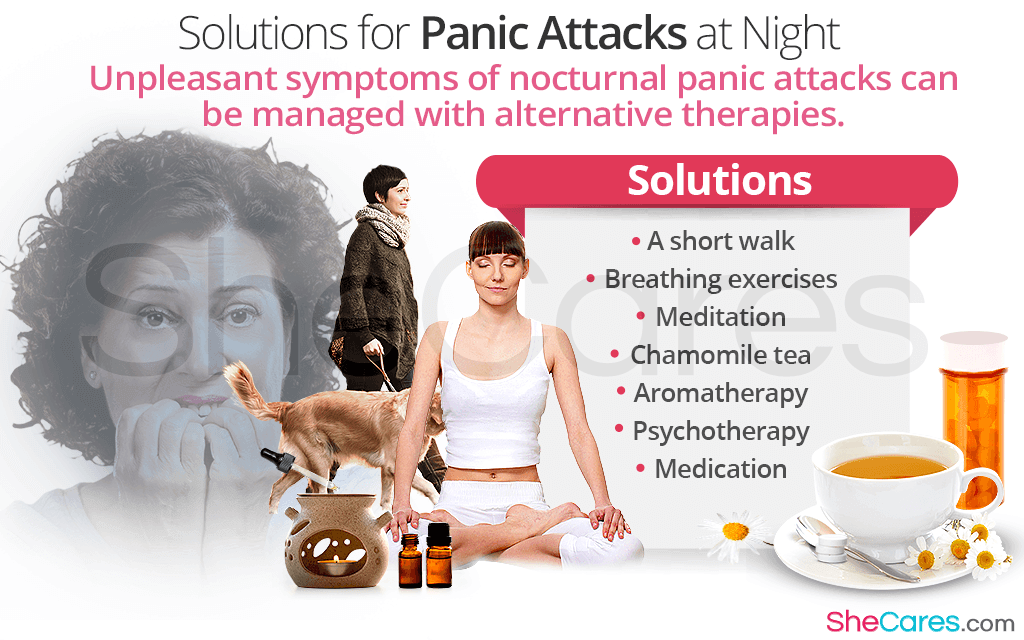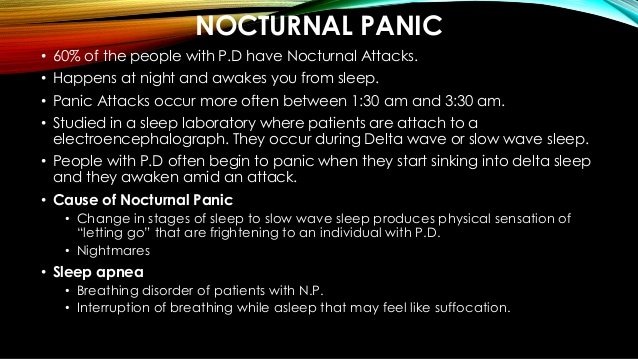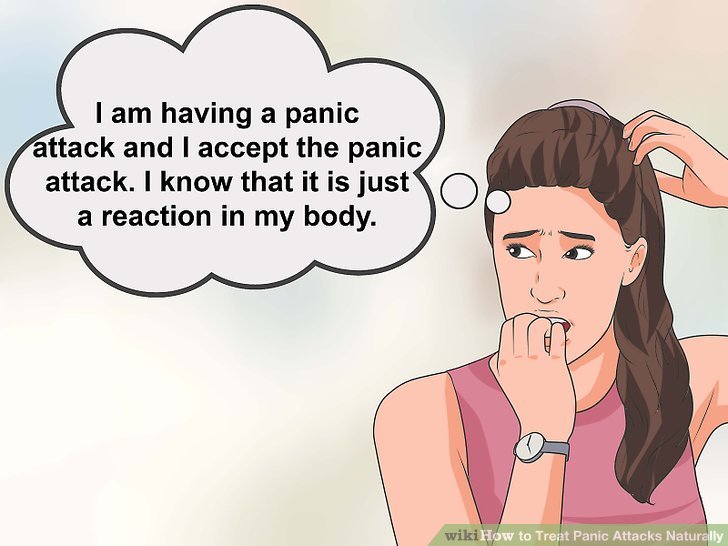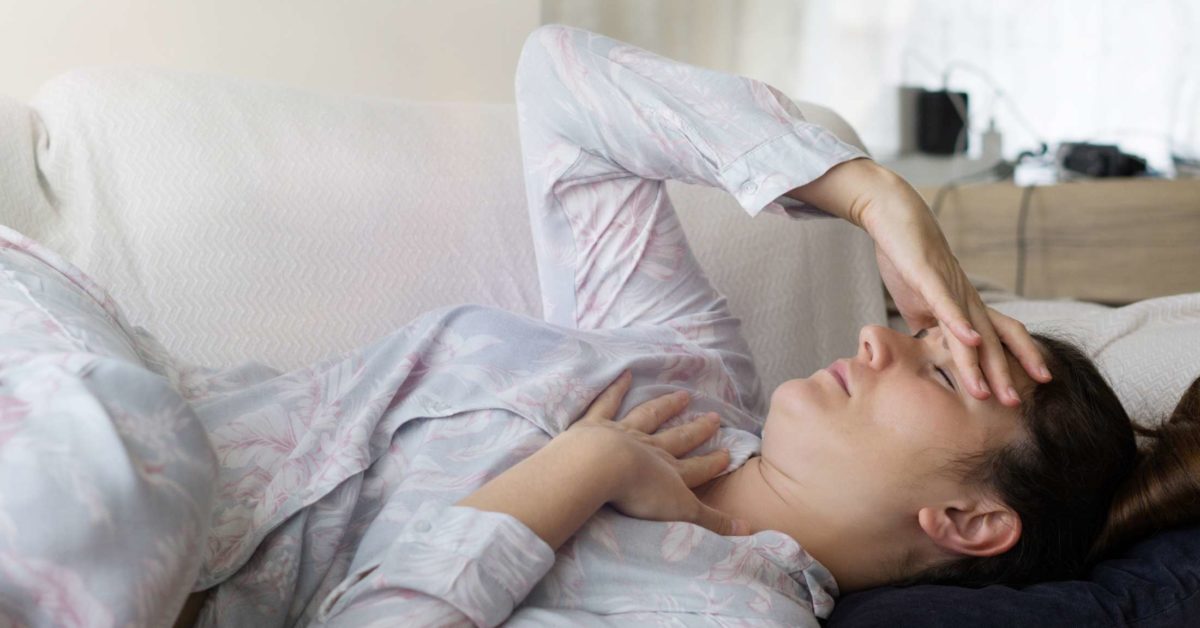Tips To Prevent Panic Attacks At Night
Experiencing a panic attack at night may make you worry about having another, causing a vicious circle, and leading to insomnia. There are a number of things you can do to try and avoid this becoming a frequent problem, and ensure that youre getting a good nights sleep:
Give yourself enough time to get the sleep you need
On average, adults need eight to nine hours sleep each night to feel rested and refreshed. Therefore, its important to make sure you go to bed at least eight hours before you need to get up so youre giving yourself enough time to have a good nights sleep. Going to bed too late and not leaving enough time for sleep may result in you constantly checking the clock and worrying that youre not going to feel rested the next day. These negative thought processes can fuel anxiety, and potentially spiral into a panic attack.
Prepare yourself for the following day
Many people struggle to get to sleep because they are anxious about the following day. You can try to reduce this anxiety by making sure that you have everything prepared. For example, you could have a to-do list, or even have your clothes laid out.
Establish a consistent sleep routine
Limit caffeine, sugar and alcohol before bed
Avoid electronic devices late at night
Create A Bedtime Routine
A bedtime routine is a great way to relax and unwind before bed. By creating a routine, you’re telling your body and mind that you’re preparing for sleep. This pre-sleep ritual can consist of many activities, such as taking a shower, brushing your teeth, or praying. These activities are meant to be calming and low energy so you’re better able to transition to a restful sleep.
Relaxation techniques are also an effective way to let go of tension before bed. For instance, visualizing can help you get your mind off your worries and focus on more calming thoughts. Progressive muscle relaxation or engaging in a few yoga stretches can help the body release stress. Other self-care strategies, such as journaling or reading, can help you reflect and slow down your thoughts.
Who Gets Panic Attacks
At least 6 million Americans suffer from panic attacks and panic disorder both conditions classified as anxiety disorders. According to the Anxiety and Depression Association of America , about 2-3% of Americans experience panic disorder in a given year and it is twice as common in women as in men. Panic disorder typically affects individuals when theyre in their 20s but is also seen in young children, adolescents, and older adults.
Panic Attack Or Panic Disorder
Anyone can experience panic attacks, especially in seasons of our lives when you suffer from large amounts of stress. However, just because you have one panic attack doesnt mean you have a panic disorder.
The physical symptoms of panic attacks and panic disorder are the same. However, according to the Merck Manual, panic disorder is when you have frequent panic attacks and start to change your routines and life in order to avoid the attacks. You also have anxiety about having more panic attacks. If you have a history of panic attacks, you may be more likely to develop a panic disorder.
Only a doctor can accurately diagnose a panic disorder. If you suspect you have a panic disorder, make sure to schedule an appointment with a mental health professional.
Establish A Bedtime Routine

Establishing a bedtime routine lets you focus on taking proactive steps for yourself instead of ruminating in your anxiety. Your bedtime routine may include activities such as taking a shower, brushing your teeth, changing into pajamas, reading from an inspirational book, prayer, or listening to music.
Your bedtime routine should be established to help set you up for better rest. Dont include any activities that may be too overstimulating, such as scrolling through social media or watching TV.
Instead, make your routine calming and quiet, leading up to you falling asleep. This will signal to your brain that it is time to rest and will allow you to go to sleep without an upset and anxious mind.
Causes Of Panic Attacks In Children
The exact cause of panic attacks or panic disorders is not known. The following factors may have a role in the development of panic disorders .
- Genetics
- Stress
- Changes in brain functions
The nature or temperament of a child may also play an important role in the development of panic and anxiety disorders. Children who are more sensitive to stress and negative emotions may have an increased risk for panic disorders. A few children may have panic reactions triggered by certain emotional stress situations such as school homework, fear of punishment from parents or teachers, etc.
Causes Of Panic Attacks And Panic Disorder
Although the exact causes of panic attacks and panic disorder are unclear, the tendency to have panic attacks runs in families. There also appears to be a connection with major life transitions such as graduating from college and entering the workplace, getting married, or having a baby. Severe stress, such as the death of a loved one, divorce, or job loss can also trigger panic attacks.
Panic attacks can also be caused by medical conditions and other physical causes. If youre suffering from symptoms of panic, its important to see a doctor to rule out the following possibilities:
Other Notes For Treating Panic Attacks At Home
The strategies above are only the beginning. You’ll also need to make many life changes that promote panic attack free living.
One example is how you adjust to living with panic disorder. Remember, fear of panic attacks increases the severity of panic attacks, which means that sometimes the best way to treat them is to face your fear and let yourself have an attack. If you find that you get panic attacks when you to go the mall, for example, then you need to make sure that you continue to go to the mall so that your panic attacks don’t control your emotions.
You’ll also need to try to reduce stress around you. You’ll need to spend more time with friends and family doing fun activities so that you aren’t as focused on the present, and you’ll need to learn how to distract yourself when you feel a panic attack coming on . These are all important parts of treatment.
Can Nighttime Panic Attacks Be Prevented
According to Dr. Bea, one of the characteristics of true panic is that it occurs spontaneously like a bolt of lightning across a blue sky. While we cant prevent sleep panic attacks, he says that we can develop more effective mechanisms for coping with the stressors in our lives.
You might increase exercise or start a mindfulness practice. Overall, it doesnt hurt to actively develop coping strategies. However, understand that doing these things may or may not influence the experience of a nighttime panic attack.
Whats another thing you can do to lessen the intensity of a sleep panic attack? Normalize the experience.
Dr. Bea explains.
These experiences feel threatening and dangerous. You fear the worst when your hearts racing, youre short of breath, youre trembling and you have a sense of impending doom or feel like youre losing control, he says.
As frightening as the experience is, its safe. Of course, when we have a catastrophic thought or appraisal of the event, it tends to drive more panic it gets our body aroused. Learn to normalize that experience, to notice the sensations but dont try to fix them.
Dr. Bea compares it to being in quicksand.
After a sleep panic attack, youre not going to recover quickly and go right back to sleep. Dr. Bea recommends getting up and going into another room to do a relaxing activity . No catching up on work or paying bills. Do something that will help you calm down until youre able to go back to sleep.
Here Are A Few Key Points To Keep In Mind If You Happen To Have A Nighttime Panic Attack:
Dont Fight it If you find yourself having a panic attack, dont fight it. Its better to let the feelings wash over you and resist the chance of making things worse than they are now by fighting against them. Think about how this just is temporary and will eventually fade away because that should help ease your worries in time
Relax It can be tough to get back in a relaxed state after experiencing an intense situation. Its important that you do your body good and start by taking deep breaths, inhaling for five seconds and then exhaling slowly over the next 10-15 seconds. Next try resting muscles with some light stretching while focusing on positive thoughts or pleasant memories.
Do Something Panic attacks are no joke. If youve woken up from one, its important that once the attack subsides to do something relaxing to take your mind off things for a bit before going back to sleep or doing anything else stressful. Dont just lie there and let thoughts of what caused this panic attack loop through your head- get up and move around! Youll be less likely not only have another panic episode but also feel more rested when you wake up in the morning instead of feeling like garbage from tossing and turning all night long thinking about how scared you were last time.
Dog Anxiety Vs Panic Attacks
So what about anxiety?
Anxiety comes when your dog is dreading a specific event or situation. The anticipated threat can be real or perceived.
An example is a dog showing signs of anxiety before a vet trip. They have picked up on the cues that they are going to the vet, and become anxious about the encounter. Some signs of anxiety in dogs include:
-
Panting
-
Eliminating inappropriately or involuntarily
-
Soliciting attention from their owners
-
Pulling ears back against their head with the head lowered and tail hanging down or tucked under the abdomen
When Should You See A Doctor For Panic Attacks
If you have any symptoms of panic attacks, seek medical help as soon as possible. Panic attack sufferers may feel like theyre in danger when the reality is that its just a temporary feeling and can be managed without treatment if caught early enough.
In general, people who are experiencing their first-time panic attack should avoid medications for anxiety or depression because those drugs might make things worse instead of better by increasing feelings of worry and insecurity.
Doctors recommend getting evaluated to determine what caused the issue before taking anything at all even an over-the counter medication!
No one should have to suffer in silence. Some people are so afraid of having another panic attack that they dont want to go near a doctor. But, if you get treatment early enough, your symptoms can be managed and life will seem much brighter than before!
Take care of yourself! It is important for both good mental health as well as physical wellbeing.
If youre experiencing the symptoms of panic disorder, dont wait any longer!
With early intervention, it is possible for sufferers to find relief sooner so they can resume living their normal lives as soon as possible.
What Is A Panic Attack

A panic attack is a sudden and intense feeling of fear or distress. These feelings typically increase before they gradually begin to fade and can happen at any time. Panic attacks are related to anxiety, says Janelle Watson, a licensed marriage and family therapist and owner of Embrace Wellness.
Anxiety affects about 40 million adults, which is around 18 percent of the population.
Although panic attacks are a symptom of anxiety, panic attacks are different from general anxiety due to the speed of onset, says Crystal Clark, MD, an associate professor in psychiatry and behavioral sciences at the Northwestern Feinberg School of Medicine.
About 3 to 5 percent of U.S. adults at some point in their life will be diagnosed with panic disorder, which is an anxiety disorder characterized by recurring attacks of sudden fear.
Panic attacks generally reach a peak of more severe or intense symptoms within 10 minutes. Unfortunately, panic attacks dont always wear a sign on their foreheads to announce that they might make a visit, Dr. Clark says. Its very much possible for a person to experience regular panic attacks without warning.
This is especially true for nighttime panic attacks. But if you experience frequent panic attacks, you may begin to identify specific triggers to help better prevent, manage, and cope with themday or night.
Provide Plenty Of Exercise And Mental Stimulation
Pet owners should also make sure they provide plenty of physical and mental exercise for their dogsas long as their veterinarian approves the level of exercise.
A minimum of a 15-20 minute walk and/or 15-20 minutes of play every day can reduce a dogs stress levels.
Providing your dogs with puzzle toys to work for their meals can also help stimulate and tire out their brain.
Short training sessions can be helpful to keep your dog mentally occupied as well.
How Long Does Treatment Last
How long treatment continues depends on you. Stopping panic attacks completely is a reasonable goal. Your doctor will design a treatment plan just for you. A treatment period lasting at least 6 to 9 months is usually recommended. Some people taking medicine for panic disorder are able to stop treatment after only a short time. Other people need to continue treatments over a long period of time, or even for their lifetime.
Offer Comfort To Your Dog During A Panic Attack
If your dog is having a panic attack and he comes to you for attention, you can pet, hug, or hold him if that helps ease the signs of his panic.
Depending on how intense the episode is, you can try to:
-
Distract and redirect your dog to play with toys
-
Take your dog for a walk
-
Practice basic dog obedience cues or tricks for high value-treats
Other dogs may enjoy being pet, brushed, or massaged by their owners.
You should also provide a place for your dog to hide. Play calming classical music and make sure the space is free of external stimulants . You can also use dog pheromone sprays or plug-in diffusers to help reduce anxiety in that location.
Homeopathy For Panic Attacks
Using homeopathy for panic attacks is the most effective and safest way to manage acute panic episodes. Our Live Positive panic treatment protocol has successfully treated thousands of patients struggling with this crippling disorder.
Panic attacks are sudden, unexpected and often unprovoked emotional disablement where a person develops an irrational fear without an apparent reason.
Questions To Ask Your Doctor
Asking questions and providing information to your doctor or health care provider can improve your care. Talking with your doctor builds trust and leads to better results, quality, safety, and satisfaction. Visit the Agency for Healthcare Research and Quality website for tips at http://www.ahrq.gov/patients-consumers/index.html.
Can Anxiety Wake You Up At Night
Anxiety can wake you up at night in the form of a nocturnal panic attack. It tends to have the same symptoms as a daytime panic attack and will wake up for no apparent or obvious reason. The reasons why people may experience these types of episodes are still not clear enough but there are some factors associated.
Here Are Five Things You Can Do To Counteract Attacks And Panic Disorder:
1) Focus on taking deep breaths in and out through your mouth, feeling the air slowly fill your chest and belly and then slowly leave them again. Breathe in for a count of four, hold for a second, and then breathe out for a count of four:
2) Some panic attacks come from triggers that overwhelm you. If youre in a fast-paced environment with a lot of stimuli, this can feed your panic attack.
To reduce the stimuli, close your eyes during your panic attack. This can block out any extra stimuli and make it easier to focus on your breathing.
3) Some people find it helpful to find a single object to focus all of their attention on during a panic attack. Pick one object in clear sight and consciously note everything about it possible.
4) Some people find it helpful to find a single object to focus all of their attention on during a panic attack. Pick one object in clear sight and consciously note everything about it possible.
5) Mindfulness can help ground you in the reality of whats around you. Since panic attacks can cause a feeling of detachment or separation from reality, this can combat your panic attack as its approaching or actually happening.
Bonus: Call a friend and ask for help and psychological support
Avoid Punishing Your Dog

Just like with humans, getting angry at someone who is experiencing panic will rarely resolve the issue. In most cases, it will only make it worse.
So, yelling at your dog, spraying them with water, forcing them to lie down, or using a shock collar is not going to help a dog thats experiencing a panic attack.
These techniques will only increase fear and anxiety. Your dog cannot control their emotions or physiological responses in these scenarios. If they could control themselves and choose another option, they probably would.
No one who has experienced a panic attack reported that it was a pleasant experience and wanted to experience another. Your dog needs your love and support to help them through their time of need.
How Do You Calm An Anxiety Attack At Night
Night time is often considered to be a time of relaxation, where we mentally unwind and prepare ourselves for sleep. However, it is still quite common to experience an anxiety attack at night. This page looks at the symptoms of a night-time anxiety attack and offers a range of tips on how to overcome this nocturnal disturbance.
Louise Baillie
Types Of Anxiety Attacks In Child
The following are the common types of panic attacks based on their causes .
Panic disorder is a type of anxiety disorder. There are many other types of anxiety disorders in childhood, closely associated with panic disorders.
Diagnosis Of Panic Attack In Children
You have to explain in detail the panic episodes of the child. Doctors may ask a few questions to identify any triggers or phobia related to panic attacks. They may also perform a physical examination and order some tests to exclude medical conditions that may resemble a panic attack .
If there is no evidence of other physical illnesses, then your doctor may refer your child to a psychiatrist. A detailed analysis by a psychiatrist could help diagnose the mental health disorders that led to the panic attacks. Mental health disorders, such as obsessive-compulsive disorder or social anxiety disorder, are a few examples of conditions that may cause panic attacks.Â
Get Up Stand Up Wake Up
If you’ve just been awakened by a nocturnal panic attack, the chances of your quickly falling asleep again are pretty low. If you want, give yourself a minute to see if you’re lucky enough for that to occur, but I wouldn’t wait any longer than that. The longer you lie there and wonder, the more panic and frustration you’ll probably experience.
So I suggest you get up and out of bed. Fully wake yourself. Splash some water on your face, have a drink of water, check on the dog, cat, or parakeet. Do a few ordinary things to help yourself wake up. A nocturnal panic attack is not the same thing as a nightmare, but you can treat it like one.
Don’t turn on the TV, start reading, or try other things in an effort to fall right back asleep. A lot of people try to distract themselves from a nocturnal attack, but I don’t put much stock in this, because distraction works best when it’s spontaneous. With a nocturnal panic attack, you’re liable to try too hard to distract yourself, and get into a struggle with your thoughts. If distraction is going to help, it should help right away. Give it a minute, at most.
Engage In Light Exercise
Endorphins keep the blood pumping in exactly the right away. It can help flood our body with endorphins, which can improve our mood. Because youre stressed, choose light exercise thats gentle on the body, like walking or swimming.
The exception to this is if youre hyperventilating or struggling to breathe. Do what you can to catch your breath first.
What Is Panic Disorder
People with panic disorder have sudden and repeated attacks of fear that last for several minutes or longer. These are called panic attacks. Panic attacks are characterized by a fear of disaster or of losing control even when there is no real danger. A person may also have a strong physical reaction during a panic attack. It may feel like having a heart attack. Panic attacks can occur at any time, and many people with panic disorder worry about and dread the possibility of having another attack.
A person with panic disorder may become discouraged and feel ashamed because he or she cannot carry out normal routines like going to school or work, going to the grocery store, or driving.
Panic disorder often begins in the late teens or early adulthood. More women than men have panic disorder. But not everyone who experiences panic attacks will develop panic disorder.
What Are Panic Attacks
Panic attacks are sudden, unexpected episodes of intense anxiety, which can cause a variety of frightening symptoms. These include:
- Feeling out of control and disconnected from your surroundings
- Feeling faint, dizzy or light-headed
- Chest pains and shortness of breath – a tightness of the chest and feeling as though its a struggle to breathe
- A racing or pounding heart
- Hyperventilating
- Numbness and tingling, for example, tingling lips and numbness in your fingers and toes
- Fluctuating body temperature feeling very hot or very cold
These symptoms can be so severe they sometimes make first time sufferers believe theyre experiencing a heart attack or a nervous breakdown. Over time, panic attacks can become more frequent, and the fear of having a panic attack becomes embedded, resulting in a vicious circle.
Night time panic attacks, also known as nocturnal panic attacks or night terrors, happen while youre asleep and wake you up, often with the same symptoms as day time panic attacks. However, while these nocturnal attacks usually only last for a few minutes, it can take a long time for you to calm down enough to go back to sleep after having one. This, coupled with worrying about whether youre going to have another panic attack, may lead to insomnia.
Panic Attacks In Children At Night

Panic attacks during nights are called nocturnal panic attacks. It is the sudden awakening from sleep with fear and physical symptoms without real triggers of fear . Children with nocturnal panic attacks may also have day time episodes. Symptoms are also similar to attacks that occur during the day. Panic episodes at night may last for a few minutes, but a child may require time to calm down and go back to sleep.
Nocturnal panic attacks are neither dangerous nor require emergency treatment. You may make sure that there are no physical reasons that could cause a panic attack in the night. If you suspect the child has some problem, then seek prompt medical care.